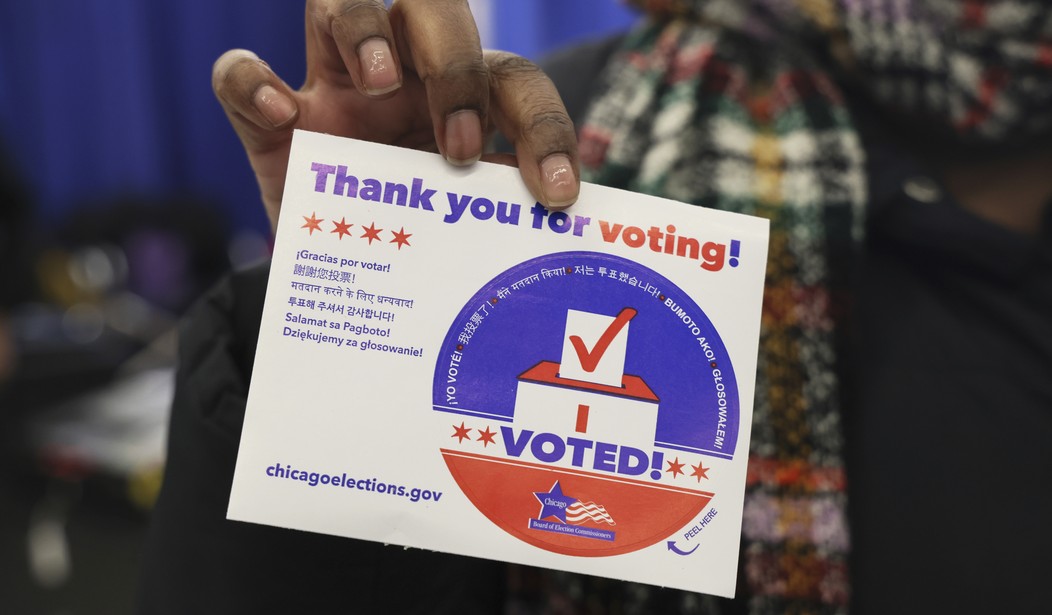The title question is one posed this week by Jeffrey Anderson at American Mind. It caught my attention because it's a topic that I've been dwelling on increasingly as the latest presidential polling continues to confound me. Rarely in my lifetime have I observed a presidential election that seemed to be such a clear, obvious choice based simply on the conditions on the ground around the country. And yet the polls remain incredibly tight, shifting back and forth by small amounts from week to week. What's driving these voters to walk a tightrope in this fashion? Anderson speculates that we are living in a unique time in political terms (that's putting it mildly) and it all comes down to whether voters are more concerned with issues or intangibles. He notes that both Joe Biden and Donald Trump have some of the lowest approval ratings among candidates in the modern era. So is this really a race to determine who is less popular than the other person? And can Kamala Harris climb out from under the shadow of Joe Biden and somehow convince voters that she bears no responsibility for the policies of her boss and now represents a breath of fresh air?
No presidential race in the past half-century has featured a major party nominee who didn’t enter a single primary, an incumbent president who exited the race before November, a former president looking to regain office, or an assassination attempt. This strange 2024 campaign has now featured all four. It would hardly be surprising, then, if many voters are feeling a sense of disorientation akin to stumbling off of a dizzying carnival ride.
Amidst this chaos, however, some fundamentals remain. This election pits a very unpopular presidency (per RealClearPolitics, the current administration has a minus 15-point net approval rating, by far the worst in year four of a 21st-century presidency) against a relatively unpopular former president (per RCP, Donald Trump has a minus nine-point net favorability rating). The election-deciding question, therefore, might well be this one: Which entity are voters more eager to sweep away from the American political scene: the Joe Biden (and Kamala Harris) administration or Donald Trump?
The answer to that question, in turn, may well come down to whether voters are thinking more about issues or about intangibles when they cast their ballots. Relatedly, it may well come down to whether they view Vice President Kamala Harris as a key player in the Biden-Harris Administration or as fresh new blood.
This entire concept of weighing issues against intangibles isn't really all that far afield from the argument I've been making ever since Trump announced he was running again. Except I referred to it as a choice between policy and personality. The problem with "intangibles," however, is that they tend to be hard to nail down by definition. Anderson focuses a good bit on personality as one of the primary intangibles before getting into the question of the five most important policy areas occupying the minds of voters in the general election.
It's a fair starting point I suppose. Joe Biden's handlers waged a relentless public relations campaign intended to define Biden as "Scranton Joe" or "Amtrack Joe." He's just a kind, elderly man (the Justice Department would later unhelpfully add "with a bad memory") who means well and has put in a lifetime of public service. That lie has long since been exposed for what it was (except for the bad memory part), but a shocking number of people either don't seem to care or they're unaware of it because of the skillful job the legacy media has done in refusing to cover the story. Then there is Trump, who appeared to revel in building his own narrative as something of a bully who defied normal political gravity, making up insulting nicknames for anyone who stood in his way and daring people to take him to task for it if they didn't like it.
Kamala Harris remains the wildcard in that arena. She's struggling to redefine herself for the umpteenth time in her political career. Amazingly, the latest polling suggests that she may be succeeding in pulling off yet another costume change with enough of the voters for her to squeak through at the finish line. But she is still left to cope with the fact that of the five issues listed as the most important by a majority of voters (inflation, immigration, crime, abortion, and world affairs), four of them seem to clearly give an edge to Donald Trump. Only on abortion does she soar well ahead of Trump. In most areas of endeavor, winning four out of five of anything will typically deliver a victory, yet that doesn't seem to be the case in America today.
If you're a voter who prefers secure borders, lower crime rates, lower prices. lower inflation, and the world not going up in flames, wouldn't your choice be obvious? Clearly that's not the case for everyone. Some appear ready to accept the polar opposite of all of those things as long as the Bad Orange Man doesn't come back to haunt their dreams again. This is the point where everyone on the "personality" or "intangible" side of the fence should probably look in the mirror, take a deep breath, and ask themselves the question famously posed by The Gipper long ago. Are you better off now than you were four years ago? Even if you detest Trump, perhaps you could take comfort in the fact that term limits ensure that you will only have to tolerate him for four years. When he comes on the television, you can change the channel. And if his policies eventually change your answer to The Gipper's question back from a "no" to a "yes," he'll simply go away in 2028. Wouldn't it be worth it?








Join the conversation as a VIP Member